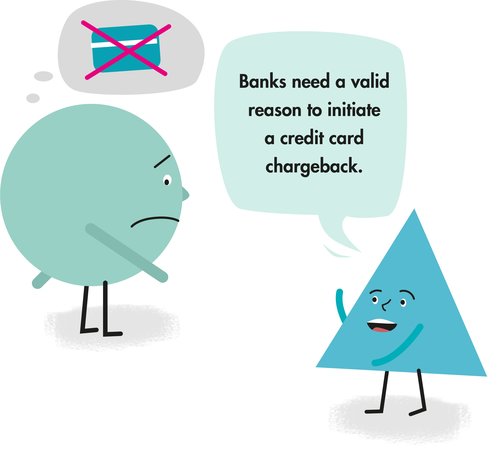Chargeback Gambling Debt Uk
Chargeback Your Winnings
- Chargeback Gambling Debt Uk Equity
- Chargeback Gambling Debt Uk Debt
- Chargeback Gambling Debt Uk Definition
This is the most common and intuitive reason for your card being charged back. The best online casino Australia options offer the choice to instantly deposit with your credit card, and some also let you withdraw your winnings onto your credit card. This would come in the form of a chargeback. Say you owe the credit card company $1,000, and win $500 at the casino and withdraw it as a chargeback. You would then only owe the credit card company $500. It is important to point out that some credit card companies will actually charge you a fee if you chargeback over your available line of credit, so double check that or make sure you owe more (or as much) as your chargeback winnings.
Chargebacks are possible because of the contract between the card issuer (or merchant acquirer) and the card scheme. They are not a right or protection given directly to the card holder. The exact grounds on which a chargeback may be attempted will vary, depending on the card scheme. Gambling debt and addiction. While gambling can be a source of entertainment, it can also cause serious money problems, addiction and debt. 0.5% of the UK’s adult population are problem gamblers. 15% of online gamblers have been gambling in the workplace in the past four weeks. 3.1% of gamblers have bet more than they can afford to lose. Comment by: Arnold On: September 09, 2010 Um, Andrew is 100% correct. Chargebacks can be done routinely. Almost always, it falls in favor of the customer. This is primarily because the vendor does not want to expose themselves once a chargeback inquiry takes place, and doesn't have much to stand on anyway. StepChange is the UK's largest provider of genuinely free independent debt advice and managed solutions, helping almost 600,000 people a year resolve problems, repay debts and rebuild lives. The National Debtline offers free independent support for advice on how to deal with your debts, including live online webchat with a National Debtline.
Stolen Credit Card Information
All reputable sites that take your credit card information have encryption technology and other security measures in place to ensure your safety. However, it is still possible for your credit card information to be compromised and used elsewhere. In some cases, it can be used to deposit and play at a casino, though this is relatively rare, as the person who stole it would have a tough time withdrawing to a different account name or address than the one used for the billing on the credit card. If this happens, though, just contact your financial institution, and they’ll refund your money and send you a new card.
Underage Gambler
If you are under the age of 18, it is illegal for you to gambler in Australia, but beyond that, all the most reputable online casinos practice what is known as Responsible Gaming. Part of the initiative is not allowing anyone under the age of 18 the opportunity to gamble. If you are a parent and your child uses your card to play at a casino, you could have the grounds to receive a chargeback, as it would make it evident that the online casino didn’t have the proper blockers in place to prevent it from happening.
Problem Gambler
Some online casinos will chargeback your deposit if you exhibit problem gambling, and this kind of goes back to the Responsible Gaming initiative. You can get yourself fully or temporarily blocked from a casino, and if you try to deposit with them, they should have you IP address blocked. However, if they fail to block you after you request it, you would have reasonable grounds to request a chargeback, since you specifically said that you were a problem gambler and to not let you access the deposit option.

Fraudulent Chargeback Requests
Your financial institution will almost certainly side with you and refund your money if you tell them you don’t recognize the charges, but the casino itself will blacklist you. And beyond that, it’s pretty safe to say that you only would get one go at that if you’re doing it fraudulently. However, honestly, if you deposit too much and lose it all, it might be worth it if your morals align with that as an option.
If you’ve been denied a refund – whether for a holiday or at home – a little-known scheme could help you get your money back.
Since the coronavirus pandemic began we’ve seen a huge increase using our chargeback and Section 75 claims tool – up 900% in March and April, compared to March and January.
With many businesses refusing to offer refunds, in direct contradiction of the law, their customers have turned to banks and card providers.
Time limits and conditions apply to each and every chargeback claim, however, with ordinary people unaware that these rules exist and reliant on their card provider to fight their corner.
Here, we unpick the complexities and explain what to do if you think your card provider has made a mistake.
What is chargeback?
Chargeback is a card refund initiated by your bank when you’ve reached an impasse with a business (referred to as the ‘merchant’).
It can be used for credit, debit and prepaid card payments of all sizes.
Unlike Section 75, chargeback isn’t a legal protection, although our Twitter poll suggests that only half of people are aware of this.
▶️TRUE or FALSE: Banks must legally process my chargeback request if I think the retailer has acted unfairly
— Which? Money (@WhichMoney) May 15, 2020
Chargeback can only be requested under specific circumstances known as ‘reason codes’, as determined by guidelines set by American Express, Mastercard or Visa. For example, Visa’s dispute code 13.1 relates to goods or services that were not received (the Mastercard equivalent is code 4853).
As these codes aren’t advertised to the public, you’ll need your bank to ask the right questions
Chargeback deadlines

Chargeback is subject to strict deadlines.
In most cases, such as defective goods, your bank will need to start the process within 120 days of the transaction date.
Or, the claim can be raised 120 days from the date you were due to receive the goods or services (such as a flight) – up to 540 days from the transaction days.
Around half of the Twitter users we polled were unaware of any deadlines.
▶️TRUE or FALSE: I can request chargeback at any time
— Which? Money (@WhichMoney) May 15, 2020
Deadlines also apply during the chargeback process, if your bank needs you to provide evidence.
Crucially the merchant will have an opportunity to defend the chargeback and provide its own evidence, as you can see from the infographic explaining the chargeback process below.
Chargeback refunds if a company ceases trading
If the retailer has gone bust before delivering the goods or services you paid for, the 120 day window starts from either the official insolvency date, or the date the goods were expected. Ask your bank which date applies.
If you have accepted vouchers (eg for a future flight) and the merchant subsequently ceases trading before you can use them, your chargeback claim window is:
- Visa 120 days from the original date of the service.
- Mastercard 120 days from the voucher or merchant-branded gift card’s expiration date, or if undated, then 540 calendar days from the processing date of the original transaction.
If you have an annual subscription, eg to a gym, and the merchant stops trading, you must request a chargeback within 120 days of services ceasing, up to a maximum 540 days of the original transaction.
Refunds for unused gift cards are generally 120 days from the expiration date printed on the card.
If there is no expiration date printed on the card, Visa’s deadline is 540 calendar days from the date of the original transaction, whereas Mastercard gives you 120 days from when retailer was declared insolvent.
Amex has not responded to our questions, although it does operate a chargeback scheme.
How *not* to make a chargeback claim
Don’t go straight to your bank Unless it has gone bust, you must always attempt to resolve the dispute with the seller in the first instance (unlike Section 75).
Don’t ignore requests for evidence If you miss these deadlines, the money will be returned back to the merchant. So ask your bank to make these dates clear to you at the outset.
Don’t celebrate too quickly Your bank may temporarily credit your account with the disputed funds while it investigates, but this money could be removed if your claim is unsuccessful.
Avoid recovery agents
We don’t think firms such as My Principal Chargeback, Mychargeback.com and Winchargeback.com are worth bothering with.
You could pay £750 to use these companies, even though making a chargeback claim with your bank is free. Furthermore, banks we’ve spoken to won’t deal with recovery agents.
We’ve also seen dodgy looking reviews for these agents; recycling identical language under different ‘customer’ names. Mychargeback and Winchargeback say they are not responsible for any fake reviews. My Principal Chargeback did not respond to our request for comment.
What if my dispute is unsuccessful?
If a decision doesn’t go your way, you can appeal to Mastercard or Visa for a final decision if your bank agrees there is further evidence to continue the claim.
You can also make a formal complaint if you think your bank has failed to handle your case appropriately, and escalate this to the Financial Ombudsman Service (FOS) if you’re still not happy with its response.
Published FOS complaints show that banks can make mistakes. We’ve seen cases where banks were ordered to compensate customers because they: gave the wrong information about timescales, ignored additional evidence supplied by cardholders; and failed to recognise that they can use chargeback even where a business is no longer trading.
- Find out more: how to take a complaint to the Financial Ombudsman Service
Chargeback and fraud
Although banks can use chargeback to recover money lost to card fraud, you are entitled to an immediate refund in these circumstances under the Payment Services Regulations.
That applies payments you didn’t authorise (the most you can be liable for is the first £35 of losses arising from the use of a lost or stolen card), as long as you report it promptly and (in the case of debit card fraud) haven’t been ‘grossly negligent’ with your Pin or security details.
There’s a high threshold for this negligence test and it only applies to debit card fraud, not fraudulent credit card payments or fraudulent debit card payments that take you into your overdraft.
Chargeback Gambling Debt Uk Equity
- Find out more:How to complain about unauthorised transactions on your card
Chargeback Gambling Debt Uk Debt
First featured in June’s Which? Money magazine
Chargeback Gambling Debt Uk Definition
Also in this issue: we meet the fraud fighters, an explanation to insurance add-ons and our analysis of the best and worst investment platforms.
Try Which? Money for just £1, including access to all our online product and service reviews.